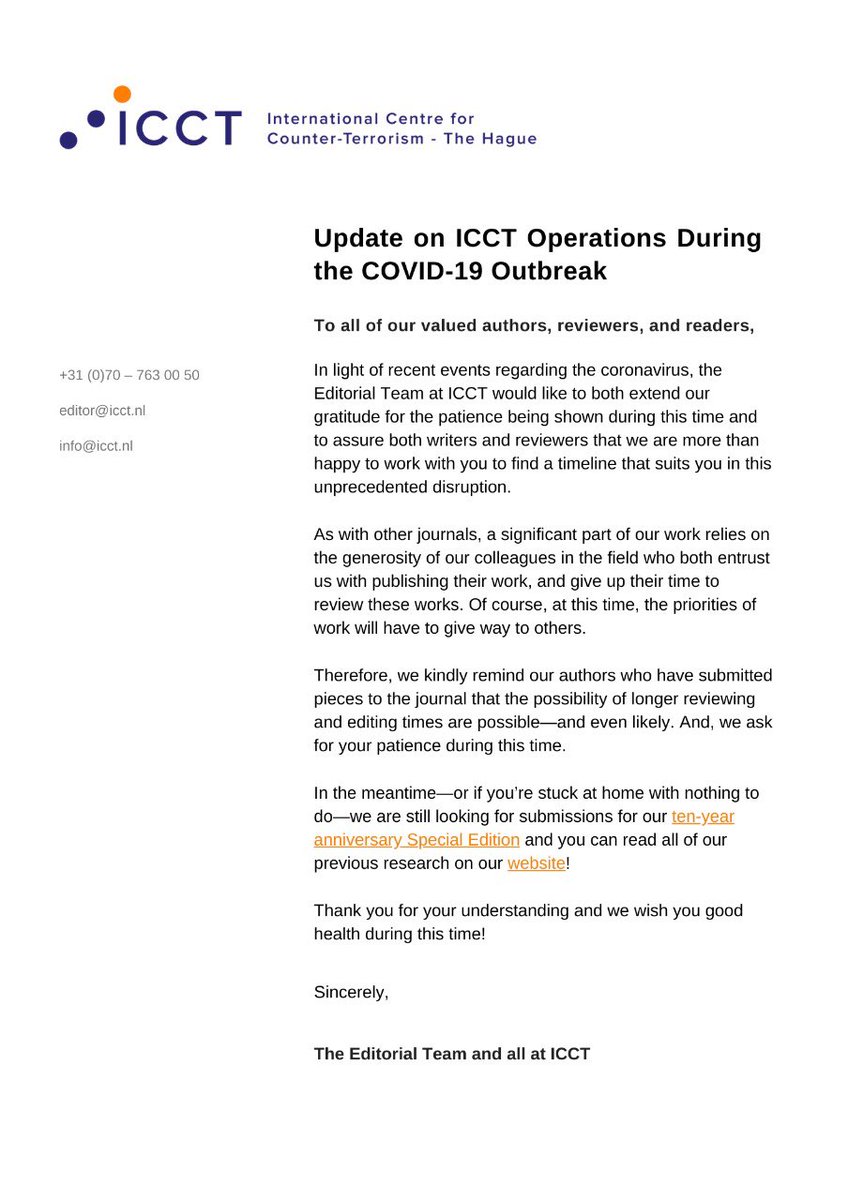The verdict of the Dutch repatriation case @tanya_mehra1 reflected on in a recent Perspective for the ICCT has been released: Children should be repatriated and should not be discriminated against because of the beliefs of their parents in accordance with article 2(2) CRC.
https://twitter.com/HaagseRechtbank/status/1193870336216981505
The women however don't need to be repatriated as they went knowingly to Syria hence cannot claim a right to family life (article 5 ECHR and 9 CRC). Women will only be repatriated with their children if it is a condition of Kurdish (or other) authorities.
volkskrant.nl/nieuws-achterg…
volkskrant.nl/nieuws-achterg…
The Dutch government only has to commit to repatriate the children, but this would require the Dutch government to improve its efforts and accept help from the US and the Kurds.
ad.nl/politiek/uitsp…
ad.nl/politiek/uitsp…
Read @tanya_mehra1's Perspective on some of the legal considerations concerning the #repatriation of foreign fighters & their families here:
icct.nl/publication/eu…
icct.nl/publication/eu…
@tanya_mehra1 EU member countries must act fast to establish a coherent repatriation policy given Turkey's new plan to send back foreign fighters.
thenational.ae/world/mena/tur…
thenational.ae/world/mena/tur…
• • •
Missing some Tweet in this thread? You can try to
force a refresh









